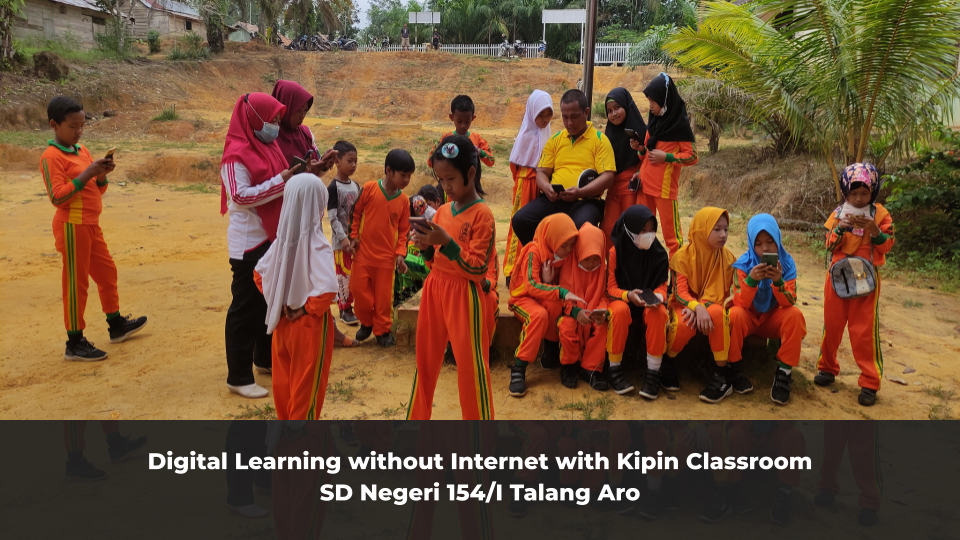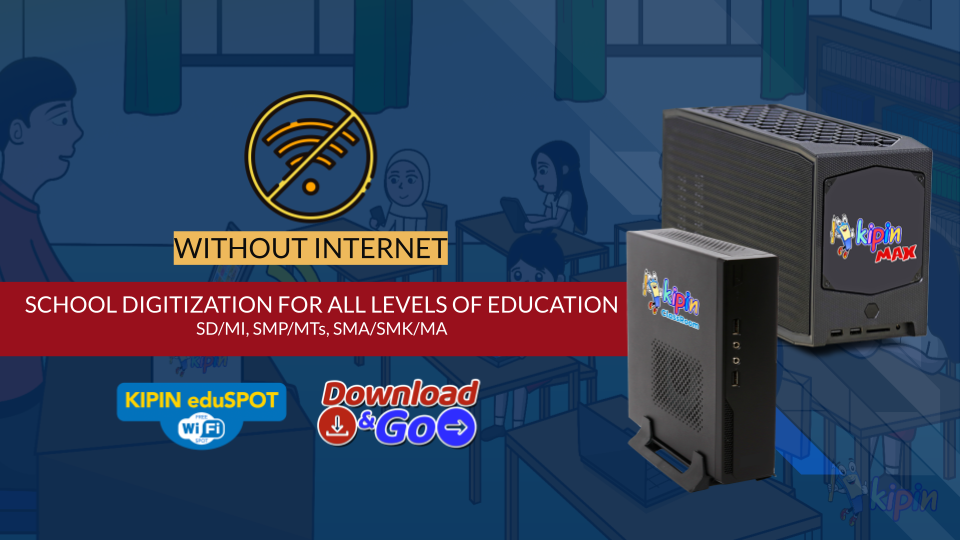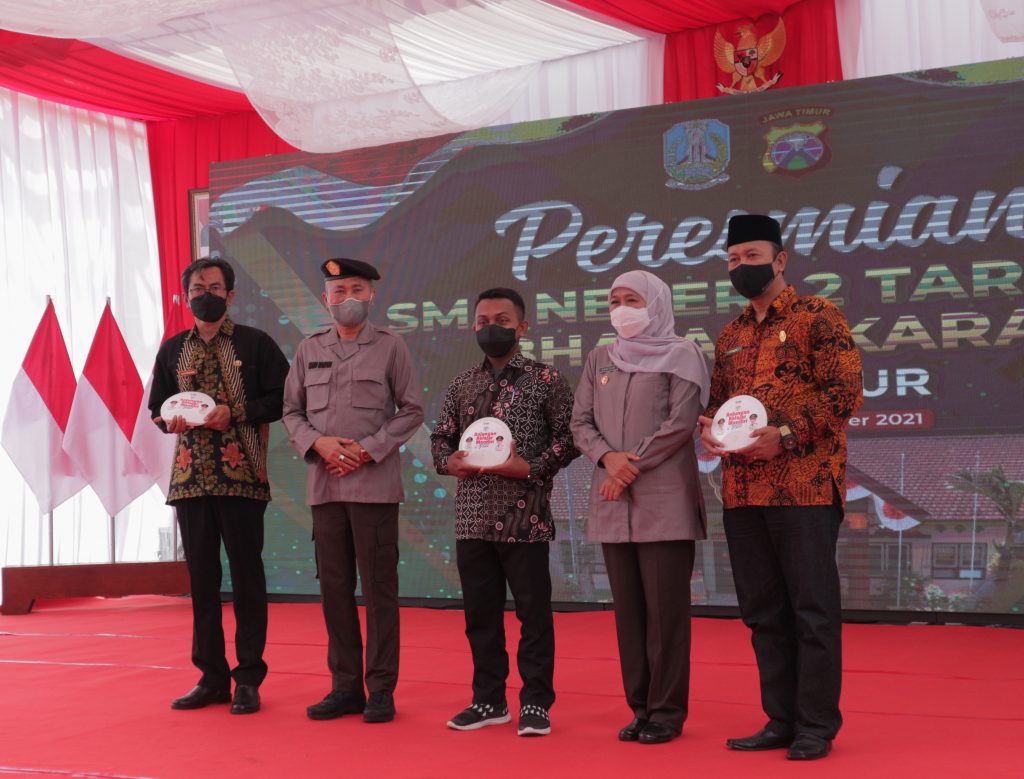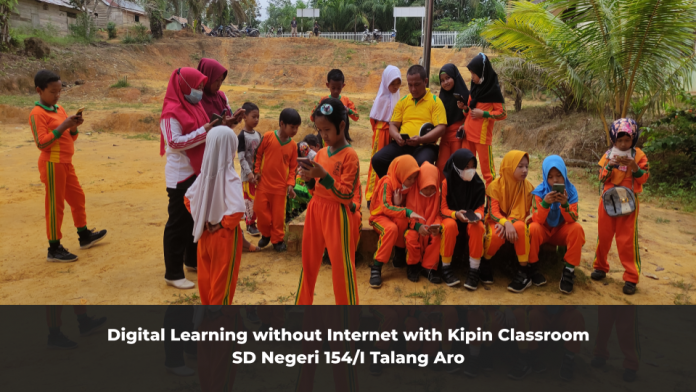In the digital age, education has evolved beyond the boundaries of conventional classrooms, thanks to the proliferation of EdTech startups. Indonesia, with its diverse geography, presents a unique challenge in ensuring quality education reaches every corner of the nation. While hundreds of online EdTech companies have emerged, many have struggled to address the specific needs of students and educators in rural areas, where internet access and financial constraints pose significant barriers to learning. In this landscape, a revolutionary EdTech solution called Kipin (short for Kios Pintar) has emerged as a beacon of hope, offering a fresh perspective on education for all, regardless of location and resources.

THE RURAL EDUCATION CRISIS
Indonesia, with its vast archipelago and uneven infrastructure development, faces a stark educational divide between urban and rural areas. While major cities enjoy relatively easy access to the internet and modern educational resources, remote regions often lack these essentials. In these areas, many students face a challenging dilemma: they don’t have access to the internet, and even if they did, they lack the means to pay for costly EdTech subscriptions. The result is an educational crisis that perpetuates a cycle of inequality.
KIPIN’S UNIQUE APPROACH
Kipin, however, stands apart from the crowd. It offers an innovative EdTech solution that brings the digital school experience to students and teachers without relying on the internet or straining their finances. Kipin achieves this through an all-in-one integrated solution known as the Kipin Offline Version “Kipin MAX” and “Kipin Classroom.” This off-site server box provides fast and free Wi-Fi connectivity to an unlimited number of devices, allowing users to do offline digital learning at school even download educational content for offline study at home.
One of Kipin’s game-changing features is its ability to transform any smartphone into a dedicated learning device, separate from its usual communication functions. This offline mode also ensures a safer online environment for children, much to the relief of educators and parents.

A SELF-SUFFICIENT OFFLINE EDUCATION PLATFORM
Kipin’s approach to EdTech is truly unique. It operates as a self-sufficient offline learning platform designed to cater to the needs of schools serving students from all backgrounds. Unlike many other EdTech startups that rely heavily on internet connectivity, Kipin has developed an infrastructure that can function effectively without it.
One of Kipin’s standout offerings is its top-of-the-line assessment server, known as Kipin PTO (Paperless Test Offline). This feature has proven invaluable for educators, enabling them to conduct assessments without the need for an internet connection. Kipin’s comprehensive suite of digital learning content, covering grades 1 to 12, has made it easily adaptable for schools of all types. Its versatility is further enhanced by native mobile apps, collectively known as Kipin School 4.0, which are accessible across a range of devices, including projectors, large-screen TVs, laptops, smartphones, and tablets.
GOVERNMENT ENDORSEMENT AND NATIONWIDE IMPACT
Kipin’s approach to EdTech is truly unique. It operates as a self-sufficient offline learning platform designed to cater to the needs of schools serving students from all backgrounds. Unlike many other EdTech startups that rely heavily on internet connectivity, Kipin has developed an infrastructure that can function effectively without it.
One of Kipin’s standout offerings is its top-of-the-line assessment server, known as Kipin PTO (Paperless Test Offline). This feature has proven invaluable for educators, enabling them to conduct assessments without the need for an internet connection. Kipin’s comprehensive suite of digital learning content, covering grades 1 to 12, has made it easily adaptable for schools of all types. Its versatility is further enhanced by native mobile apps, collectively known as Kipin School 4.0, which are accessible across a range of devices, including projectors, large-screen TVs, laptops, smartphones, and tablets.

Conclusion
In a country with a diverse educational landscape like Indonesia, addressing the unique challenges faced by students and educators in remote areas is crucial for achieving educational equity. Kipin’s revolutionary approach to EdTech, focused on providing offline, accessible, and high-quality digital learning, has emerged as a shining example of success in this mission. While many EdTech startups have faced challenges in Indonesia, Kipin continues to grow exponentially, thanks to its product-market fit tailored to the nation’s needs.
In a world where education knows no bounds, Kipin is breaking down barriers and making quality education a reality for all, regardless of location and resources. To learn more about this groundbreaking EdTech solution, visit their website at https://kipin.id/


